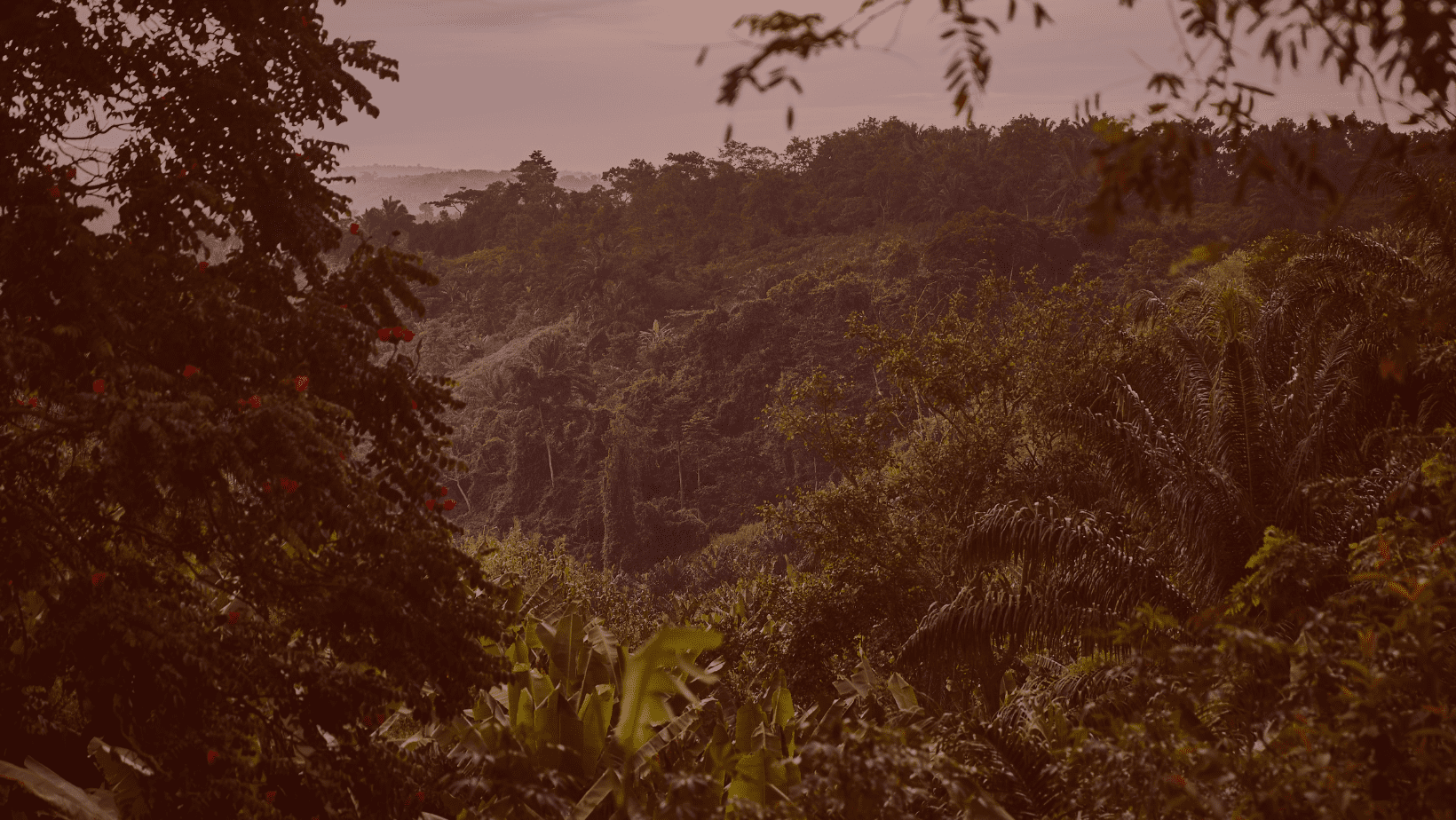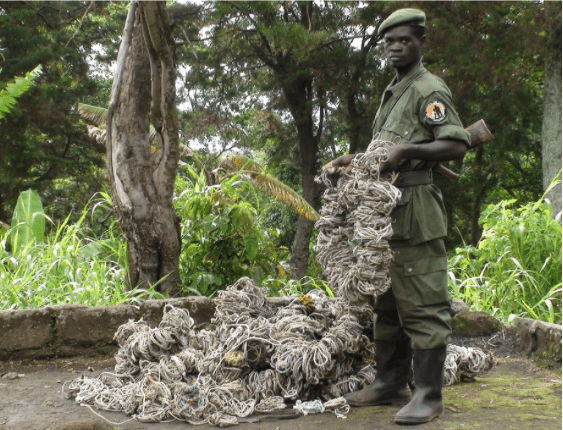
Join Our Photo Mural
A snare is a type of rudimentary trap used to capture wild animals for bushmeat. Once a trap is sprung, a noose normally made of wire or rope will tighten quickly around the neck or body of an animal, often causing a high degree of suffering. For this reason, the use of snares is heavily condemned by animal welfare groups. Snares are also indiscriminate, frequently capturing non-target animals. Some of these animals are threatened by extinction, making desnaring efforts crucial for the preservation of endangered species, many of which have vital cascade effects on their surrounding environment and its biodiversity.

Around 4 million people live within a day’s walk of the Park, many of whom live in absolute poverty and rely on bushmeat as a last resort. Snares are also set by militia groups settled deep within the Park’s boundaries. As well as being easy to set in large numbers, snares are cost-effective due to the relative low cost of wire and rope and present a reduced risk of injury by limiting direct contact with wild animals. Conversely, animals caught in snares suffer immeasurably, with many sustaining injuries that lead to slow and painful deaths. The buy-in of local communities has been crucial in the fight against snares and the suffering they cause. Their cooperation and appreciation of wildlife lead to fewer snares and more effective desnaring efforts.
1988 snares were cleared
Virunga pilots conducted 27,435 km of air surveillance
Rangers patrolled 25,800 km by foot
Ranger Yaya with snares disabled during two months of patrols in Virunga National Park.

In this short video, a team of trained Park Rangers ventures out into the rainforest in search of snares. Once a trap is located, the patrol must work out the best way to disable it in order to protect themselves and make the Park a safer place for animals.
Adopt
Virunga clothing, prints and accessories, with all proceeds going towards the Park.
Shop
Your donation will help the conservation efforts to protect wildlife, provide sanctuary to orphaned mountain gorillas and develop a local green economy.
Donate
Choose from the silky smoothness of coconut milk, the bold intensity of dark chocolate, the nutty richness of peanut dark, or the creamy delight of coconut white.
Shop
Engage in this initiative by sharing a personal photo symbolizing your connection to Virunga or expressing your gratitude for nature. Your submitted photo will be crafted into a porcelain tile, becoming part of a captivating larger photo mural alongside numerous others.
Join
There are many ways to support the Park, from cash donations to stock. Find out more.
Learn More